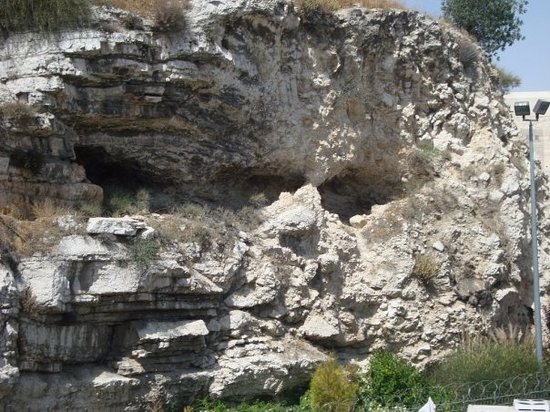By J. Mark Harris
From an early age, we are taught that there are two sides to every story. As one of four siblings growing up in our home, often disputes would arise. After one of us would plead our case with our mother, her first response would often be, “Well, let me hear your brother or sister’s side of the story before I make a decision.”
Having multiple viewpoints adds to the clarity or understanding of a given situation. The multiple facets of a gemstone are what make it most beautiful – they allow it to reflect light in many directions. If a diamond were only cut and polished flat, its value or worth would greatly diminish – not to mention the loss of its beauty. Multiple witnesses to an auto accident can help the officers investigating to get a full view of the situation and not just a partial perspective.
In our Bible, God has chosen to give most of His Word to us in either a singular or, at most, dual perspective. The notable exception to this is Christ’s earth’ ministry. When God visited this eart as a man in the person of Jesus Christ our Lord and Savior, He chose not one or two or even three, but four different facets to see Him through. These perspectives we call the gospels: Matthew, Mark, Luke, and John.
Each of the gospel writers were instructed by the Spirit of God (2 Timothy 3:16, II Peter 1:21). Each was given a similar, yet distinctly different, perspective into our Lord’s earthly ministry. Like a perfectly faceted gemstone, these four give us a much clearer and more beautiful look at Christ’s ministry.
Matthew, Mark, and John were considered to have, at some point, been eyewitnesses to the ministry of Jesus. Luke, the “beloved physician”, as the Apostle Paul called him in Colossians 4:1 L, was probably the most educated of the four Gospel writers. Luke, though, was more of an outsider.
Luke states in the first few verses of his gospel that he received his knowledge from eyewitnesses to the Lord’s life. Luke also wrote the book of Acts which through the ministering of men like Peter and Paul contains the origins (Acts 2:15) and doctrinal foundation (Acts 2:3739) of the Apostolic New Testament’ Church which our Lord still invites us to become a part of today (Acts 2:39, 2 Peter 3:9, Revelation 3:20 and 22:17).
Luke was entrusted with a special perspective of the Lord’s life. Matthew spoke of the place of Jesus’ execution as Golgotha, ‘a place of a skull” (Matthew 27:33). Mark also referenced Golgotha as, “The place of a skull” (Mark 15:22). Then, last of all, John writes in John 19:17, “And he bearing his cross went forth into a place called the place of a skull, which is called in the Hebrew Golgotha:”
With three of the four gospel writers referencing the place of Jesus death as Golgotha, we can see their common background as less educated than their co-writer, Luke. Golgotha has a mixed origin. The word is said to originate in the Aramaic and was common both in Hebrew, the language of the Jews at the time of Christ, and also was used in the Greek language, the common non-Jewish, “working man’s” language of the day.
Luke, however, chose to use the word Calvary (Luke 23:33). Calvary was of Latin origin or the language of the educated and wealthy of the day. Both Golgotha and Calvary have the same basic meaning, place or hill of the skull or skulls. Some say the hill itself resembled a human skull or the top or cranium of the skull. Others say that because the ground was so littered with the bones including skulls of the executed, that was where its name originated.
It is interesting that we sing countless songs about Calvary, a name used only by Luke, one gospel writer, yet, the name used by three of the gospel writers, Golgotha, is rarely used in hymns.
How many dozens of churches do we know with the name Calvary? Do you know any named Golgotha?.
Many will read this and say, “Big deal; what difference does it make?” It really does matter as to the names, or their origins in scripture. Not one word in our Bible is there by accident or just to fill up space. God had a message in using the poor or common man’s term, Golgotha, and the wealthy or more educated man’s term, Calvary. What transpired on that hill that day was for all – every man, woman, child, young, old, rich, poor, red, yellow, black, or white. He died for all of our sins!
So, on this Easter, please take time to remember “For God so loved the world…” (John 3:16). If we truly do love Him then as He so plainly spoke in John 14:15, “If ye love me, keep my commandments.” We can all be thankful that “On a hill far away stood an old rugged cross…” Golgotha or Calvary, whichever name you choose, the cross stood there on that hill for you and me. Our Jesus died so that on this coming Easter Sunday we can all celebrate life. Have a blessed and meaningful Easter!
Bro. Harris has been the pastor of First Pentecostal Church of Pinckneyville, IL since March 2007, and is also a contributing writer for the “From the Pulpit” column for the Perry County Advantage Newspaper.



